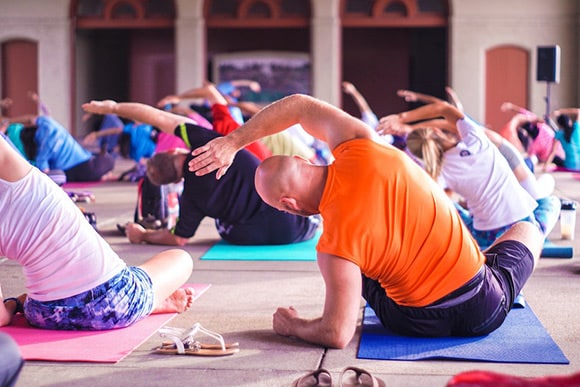You’ve heard it a million times: mental health and physical health go hand in hand. When we think about physical health, many of us focus on one thing: exercise. It’s true exercise is an important part of physical health, but it’s just one piece.
The way we carry our bodies through our daily lives can have a huge impact on our minds. Let’s talk about how to maintain a good mind-body relationship.
Let’s get physical!
Let’s start with the obvious one. We’ve heard the term “runners high”, the feeling of euphoria and energy that many runners experience during their workouts. But it’s not just limited to runners — athletes of all sports get this rush while physically exerting themselves. So, what is it?
Physical activity releases a neurotransmitter cocktail in the brain, which helps reduce stress and relieve pain. Endorphins, dopamine, norepinephrine, and serotonin are all invited to the party when we exercise, leading to regulated and improved mood, and a decrease in levels of anxiety and depression.
This can do wonders for the body, like balancing appetite, helping you sleep better and longer, and reducing stress. Naturally, when our mood is steady, we’re eating well, and we’re well rested, our minds feel really good too.
Or, rest your body
Opposite to exercise, doing nothing can be beneficial for the body and brain too — but only if it’s done intentionally. Meditation has been practiced for centuries, but it’s become especially mainstream in the last few years with the rise of apps like Headspace and Calm.
The average person has learned to carve time out of their day to do absolutely nothing, which is nothing short of a miracle for our always-on culture. Research has found that meditation can reduce anxiety and depression, improve focus, and can even help in the treatment of addiction.
Get some sleep
Ah, the thing at the bottom of most of our to-do lists. Let’s change that. Sleep is super important for state of mind. The relationship between sleep and mental health goes both ways: lack of sleep can increase the risk of developing certain mental illnesses, but also, mental illness can cause sleep disruption. Which came first?
It’s different for everyone, but one thing’s for sure: having your sleep disturbed can affect your thinking, emotions, and body regulation in a not so great way.
A strategy to overcome this is by practicing “sleep hygiene”, which is a fancy way of saying: avoid disturbing your sleep schedule and keep your bedroom for bedroom activities only. Keep it clean, screen-free, and make it a cozy place that you actually want to unwind in at the end of the night.
What you put in your body impacts your mind
Serotonin, the neurotransmitter that’s connected to mood, pain, appetite and sleep has a big influence on how you feel. And about 95% of it is produced in your gastrointestinal tract.
Researchers have found that the risk of depression is 25-35% lower in those who eat traditional diets (like Japanese and Mediterranean) in comparison to Western diets.
Traditional diets value a balance of unprocessed, fresh foods that make for great fuel — and that same balance can be applied to other things we put in our bodies — like limiting the things we all know aren’t so good for us. Keeping things like drinking and smoking to a minimum (or not at all) keeps the body in good shape.
Treating mental health and physical health equally
It’s clear that physical health is absolutely connected to mental health. But that’s often forgotten in our societal systems and our daily lives. Consider this: physical illnesses are almost always accepted without question, because they’re often accompanied with physical cues like bandaids, crutches, bruising, blood… you get the picture. Mental health, on the other hand, doesn’t come with all that — but the brain is an organ too, and illness doesn’t need to be physical to be real.
It can, however, manifest in the body. Research found that Canadians with symptoms of depression also report experiencing three times as many chronic physical conditions. The mind-body connection is ultra-powerful.
Our mental health and physical health are holistic. Both are made up of a number of complex factors, both can affect each other, and both matter equally. So let’s start paying them equal attention.
Much like healthcare workers can help us stay in good physical health, trained counsellors can help us with our mental health. Wellin5 can help you find a counsellor that meets your specific needs.
Trying to decide if you need counselling? Check out Wellin5’s blog to help you understand why counselling is so effective.
Author: Sarina Arefzadeh

